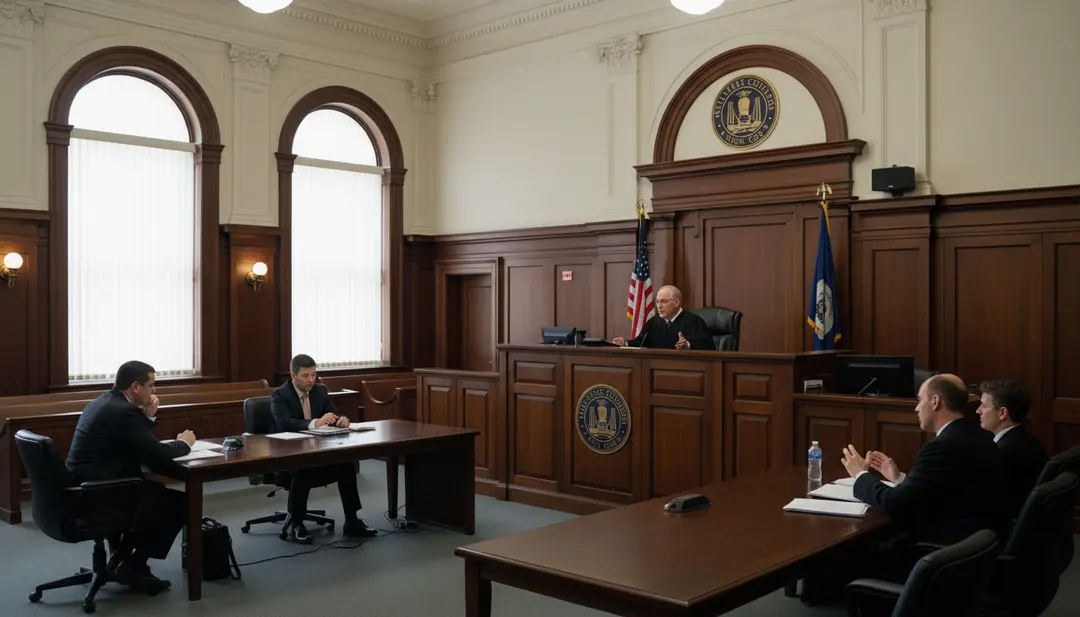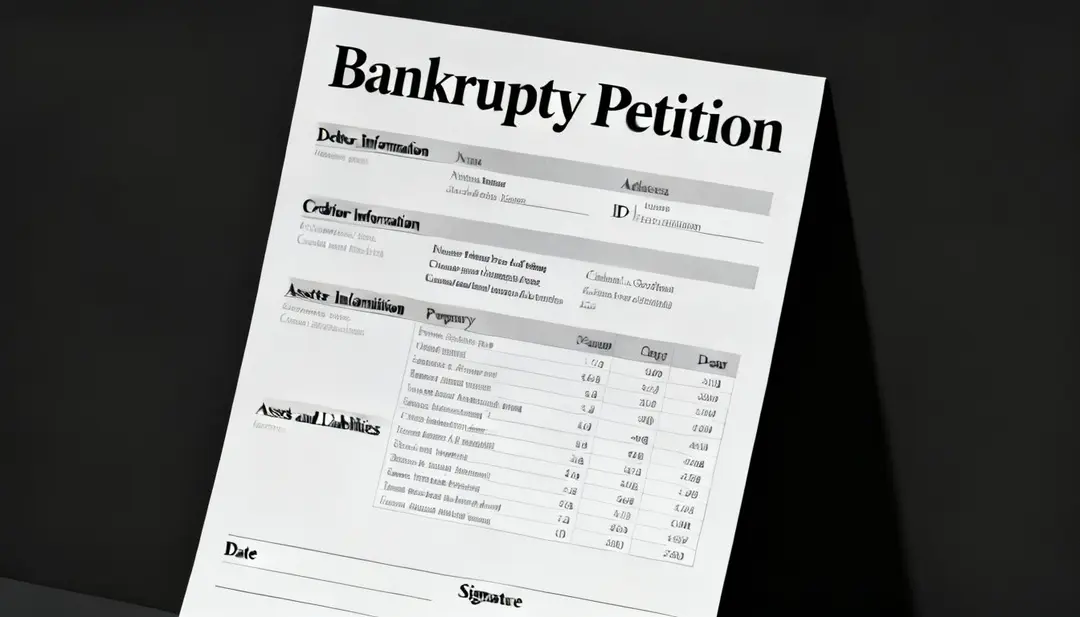When it comes to managing a condominium board in Arizona, legal intricacies are par for the course. Navigating these complexities without expert guidance can be a risky endeavor. This article delves into the pivotal role of specialized legal counsel in ensuring the smooth operation of condo boards within the unique landscape of Arizona’s laws.
The Role of Legal Counsel in Condo Board Management
In the intricate world of condominium management in Arizona, legal counsel acts not just as a guide but as a cornerstone of effective and compliant operation. The responsibilities of a condo board are vast and varied, encompassing everything from financial management to dispute resolution. Here, legal experts step in as invaluable assets, helping to navigate the complexities with precision and foresight. Here are some of the key roles legal counsel plays for Arizona condominium associations:
Interpreting the Arizona Condominium Act: This state-specific legislation governs condominiums and can be a labyrinthine text for those unversed in legal jargon. An attorney specializing in this area breaks down the Act into understandable segments, ensuring that board decisions are in line with current legal standards. Key aspects like unit owner rights, board member responsibilities, and the handling of common elements are interpreted in the light of everyday scenarios faced by the board.
Advising on Governance and Policy-Making: The creation and amendment of policies are fundamental to condo board operations. Effective legal counsel ensures that any new board policies are effective and compliant with state and federal laws. For instance, when drafting rules about the use of common areas or pet policies, an attorney would balance legal requirements with the community’s needs, helping to avoid potential legal disputes down the line.
Contract Review and Negotiation: Condo boards often enter into various contracts with service providers, from landscaping to building maintenance. Legal experts review these contracts to protect the board from unfavorable terms and potential liabilities. They also negotiate on behalf of the board to secure terms that best serve the interests of the condominium community.
Risk Management and Dispute Resolution: An attorney’s role extends to foreseeing and mitigating risks. This includes advising on insurance coverage, addressing owner disputes before they escalate, and guiding the board through any legal proceedings. Their expertise in conflict resolution can be particularly beneficial in maintaining a harmonious community environment.
Keeping Up with Legislative Changes: Laws and regulations are not static. An adept attorney stays abreast of changes in condominium law and advises the board on necessary policy updates. An expert attorney takes a proactive approach to ensure that the board remains compliant and helps them avoid legal pitfalls wherever possible.
Training and Education for Board Members: Knowledgeable legal counsel often provides training sessions for board members. These sessions cover key legal concepts, duties and responsibilities of board members, and best practices in condominium management, empowering members to make informed decisions.
In essence, the role of legal counsel in condo board management in Arizona is multifaceted, combining legal acumen with strategic advice. This partnership fosters a well-managed, legally compliant, and harmonious condominium community.
Common Legal Challenges Faced by Arizona Condo Boards
Condo boards frequently encounter legal hurdles ranging from internal disputes among unit owners to external compliance issues with state regulations. For instance, disagreements over common area maintenance or assessment fees can escalate without proper legal guidance. Moreover, Arizona laws have specific provisions relating to condo boards that, if overlooked, could lead to significant legal troubles. Providing anonymized case studies here can illustrate these challenges and the solutions legal counsel provided.
Disputes Over Common Area Maintenance:
- Challenge: Conflicts may arise between condo boards and unit owners regarding the maintenance and upkeep of common elements, such as swimming pools, gyms, or landscaping.
- Example Problem: A condo association faced a legal challenge when some unit owners claimed that the board was neglecting the maintenance of the swimming pool, which was a significant amenity. They demanded reduced association fees until the issue was resolved.
- Solution: Legal counsel reviewed the association’s bylaws and contracts, ensuring that maintenance responsibilities were clearly defined. They then worked with the board to address the maintenance issues promptly, preventing further disputes. The unit owners were satisfied with the resolution.
Assessment Fee Disagreements:
- Challenge: Unit owners may dispute assessment fees, which are crucial for funding essential services and maintenance within the condominium community.
- Example Problem: In a condo complex, some owners believed that the assessment fees were excessive and challenged the board’s financial decisions. This dispute led to financial instability within the association.
- Solution: Legal counsel conducted a review to ensure transparency and compliance with Arizona laws regarding assessment fees. They helped the board present a detailed breakdown of expenses to the unit owners and justified the fee structure. This transparency helped regain trust and resolve the dispute.
Compliance with Arizona Condo Laws:
- Challenge: Condo boards must adhere to specific Arizona laws and regulations governing condominiums, such as disclosure requirements, reserve fund management, and annual meetings.
- Example Problem: A condo board neglected to hold an annual meeting, which was mandated by Arizona law. This oversight put the association at risk of legal consequences.
- Solution: Legal counsel advised the board on the importance of compliance with state laws and assisted in organizing the overdue annual meeting. They also conducted training sessions to educate the board on ongoing legal requirements, ensuring future compliance and avoiding potential legal troubles.
Arizona condo boards face a variety of legal challenges, ranging from internal disputes to compliance with state regulations. Legal counsel plays a crucial role in resolving these issues by providing guidance, facilitating mediation, and ensuring adherence to relevant laws and agreements. These example problems illustrate how legal expertise can help condo boards navigate these challenges successfully and maintain a harmonious community.
How Legal Counsel Can Protect Your Condo Board
Understanding how legal counsel can protect your condo board is essential to understand the proactive role they play in ensuring a well-functioning condominium community and avoiding legal pitfalls:
Policy Updates and Compliance:
- Legal counsel can actively assist condo boards in reviewing and updating governing documents, bylaws, and policies. These documents should align with current legal requirements and community needs.
- By regularly reviewing and amending governing documents, attorneys ensure that condo boards remain in compliance with changing state and local regulations, reducing the risk of legal challenges due to outdated policies.
Regulatory Compliance:
- Condo associations in Arizona must adhere to various state laws and regulations. Legal counsel plays a crucial role in keeping the board informed about these regulations and ensuring compliance.
- Attorneys can provide guidance on issues like annual reporting, financial disclosures, reserve fund requirements, and other legal obligations to prevent regulatory violations.
Contract Review and Negotiation:
- Condo boards frequently enter into contracts with service providers, contractors, and vendors for maintenance, repairs, and other services. Legal counsel can review and negotiate these contracts to protect the association’s interests.
- Attorneys ensure that contracts are fair, include necessary indemnity clauses, and provide legal recourse in case of breach or disputes with service providers.
Risk Assessment and Mitigation:
- Experienced attorneys can conduct risk assessments to identify potential legal vulnerabilities within the condo community. They can advise boards on strategies to mitigate these risks proactively.
- This proactive approach may involve insurance recommendations, safety measures, and steps to address common areas or amenities that could pose legal liability.
Educating Board Members:
- Legal counsel can provide training and educational sessions to condo board members to ensure they are well-informed about their legal responsibilities and obligations.
- Educated board members are better equipped to make informed decisions, reducing the likelihood of inadvertently breaching laws or regulations.
Avoiding Discrimination and Fair Housing Violations:
- Legal counsel can assist condo boards in understanding and complying with fair housing laws, preventing discrimination, and ensuring equal access to housing for all residents.
- This includes advising on reasonable accommodation requests, handling complaints, and creating policies that promote fair housing practices.
Legal counsel for condo boards goes beyond dispute resolution; they play a proactive role in preventing legal issues and protecting the board’s interests. By advising on policy updates, ensuring regulatory compliance, establishing effective dispute resolution mechanisms, and offering guidance on various legal matters, attorneys help create a harmonious living environment while safeguarding the board against potential legal pitfalls. Their expertise is an invaluable asset in maintaining a well-functioning condominium community.
Choosing the Right Legal Counsel in Arizona
Selecting the right legal counsel for condo boards in Arizona is a critical decision that can significantly impact the success and harmony of the community. Here are some key things to consider when looking for legal counsel for Arizona condo associations:
Expertise in Condo Law:
- When seeking legal counsel for condo boards, it’s essential to prioritize attorneys or law firms with a specialized focus on condominium law. Condo law can be complicated. It’s important to be represented by a law firm that specializes in representing condominium associations.
- An experienced condo lawyer will have a deep understanding of the unique challenges and legal intricacies specific to condominiums, such as governance, maintenance, assessment fees, and common area disputes.
Arizona-Specific Knowledge:
- Condo boards in Arizona must comply with state-specific regulations, statutes, and laws that govern condominiums. It’s essential to choose legal counsel who not only understands condo law but also has a thorough grasp of Arizona’s legal landscape.
- Knowledge of Arizona’s condominium laws, including the Arizona Condominium Act, is essential for ensuring that the board’s actions and decisions align with state requirements.
Proactive Approach:
- Find an attorney that has the experience and knowledge to be proactive in identifying and addressing potential legal challenges for your condo association before they escalate to serious legal matters. They should actively work with the condo board to anticipate issues and provide tailored advice to prevent disputes, whenever possible.
- A proactive attorney can help the board implement preventive measures, review contracts, and update governing documents to minimize the likelihood of legal conflicts.
Track Record and References:
- Boards should conduct due diligence by researching potential legal counsel and seeking references from other condo associations or clients they have worked with. Having a strong track record of successful resolutions in condo-related cases is the most effective way to predict they will be able to provide expert legal counsel to your condo association.
Communication and Accessibility:
- Effective communication is crucial in any attorney-client relationship. The chosen legal counsel should be accessible and responsive to the board’s inquiries and concerns.
- It is invaluable to have an attorney that can explain complex legal concepts in a clear and understandable manner, ensuring that board members can make informed decisions once they understand the key concepts.
Cost Transparency:
- Understanding the cost structure and fee arrangements is vital. Legal counsel should provide clear information about their fees, billing methods, and potential additional costs.
- Boards should have a clear understanding of the financial implications of hiring legal counsel, ensuring that it aligns with the association’s budget.
Conflict Resolution Skills:
- In addition to preventive measures, the chosen attorney should have strong conflict resolution skills. They should be experienced in mediation and negotiation, which can help resolve disputes amicably and avoid costly litigation.
Choosing the right legal counsel for condo boards in Arizona requires a thorough assessment of an attorney’s expertise in condo law, knowledge of Arizona-specific regulations, proactive approach, track record, communication skills, transparency in costs, and conflict resolution abilities. Partnering with the right attorney who can provide tailored advice and guidance is essential for maintaining a well-functioning and legally compliant condominium community.
Finding the Best Legal Counsel for Your Arizona Condo Association
The complexities surrounding condo board management in Arizona are many, but with the right legal counsel, these challenges become manageable, ensuring the board’s decisions are sound, compliant, and in the best interest of the community. Expert legal guidance is a necessity for the smooth operation of a condo board.
For condo boards seeking specialized legal representation in Arizona, our firm is here to help. Halk, Oetinger, and Brown only represent condominium associations, planned communities and homeowners associations. Reach out to us today using the contact us page our site here for expert guidance tailored to your unique needs and ensure your board’s legal standing is solid and secure.
Halk, Oetinger, and Brown shares this article for informational purposes only, and it does not create an attorney-client relationship.















